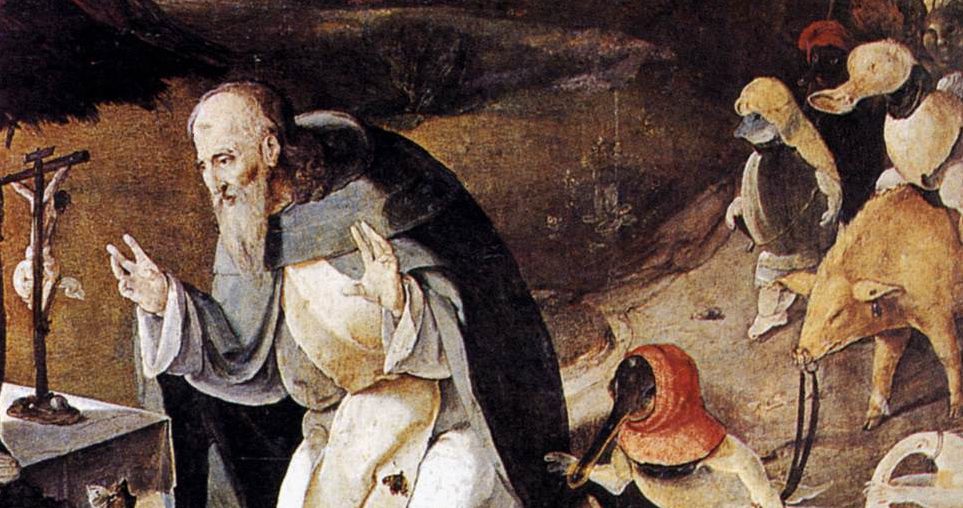
05 Jul Reflections on Sin and Security
For many of us, at least for some of the time, there is a deep connection between sin and insecurity. When we suffer the frustration of our expectations, when we feel something is missing from our lives, when things seem to be unfolding beyond our control and leaving us feeling empty or anxious – it’s then that we tend to seek compensation in saying or doing things that we know to be wrong. And this is because sin can often provide kinds of immediate satisfaction which we find ourselves unable to obtain elsewhere. Sin can reassure us, allowing us to gratify desire, take back control, and once again experience, however transiently, a sense of being satisfied and complete.
In short, sin plays upon our insecurities by promising to release us from them. Instead of feeling vulnerable and dissatisfied, through sin we can regain the feeling of self-assurance we instinctively seek.
And here it’s important to realize that we seek not just assurance but self-assurance. Self-assurance means not only assurance about oneself, but also assurance in and from oneself. We want assurance founded within us, from our own resources and the exercise of our own capacities. Only this, it seems, can guarantee the kind of security we desire. It has to be the kind that we are able to produce ourselves, without depending upon anything or anyone beyond us. For things or people beyond us can evade us and escape our control, returning us immediately to our vulnerability. But in depending solely upon what I can be sure of bringing about all by myself, my security promises to be absolute. Only then is self-assurance rendered complete. It will be an unbroken circle I draw around myself, sealing me up as the price of making me secure.
Now if this is the kind of security we are aiming at, then we can see that the connection with sin takes on a new and deeper dimension. It isn’t simply that sin will sometimes help to bring such security about; it’s rather that, at the most fundamental level, sin is the only way to bring such security about.
Why? Depending solely upon things which I myself can achieve will necessarily incline me to sin, since doing good can never depend upon me alone, but on a thousand factors lying beyond my control. The result is that we often have to watch the good that we have attempted to accomplish going unrealized – or at most being realized only partially or obscurely. For the good is essentially multi-faceted and hence, despite our best intentions, it is vulnerable to all kinds of obstruction from events foreseen and unforeseen, as well as being at risk, of course, because of failures of collaboration from other people. It follows that if guaranteed results are what we seek, because they alone provide our route to self-assurance, then trying to do good will very often fall short of what we are after.
Sin, by contrast, is much simpler and more immediate, much more difficult to impede or deflect. Anyone can sin, and be assured of experiencing its effects more or less instantaneously. For this reason, if one wants to prove one’s mastery, if what one is after is above all control over things and the self-assurance such control affords, then sin is really the only way to go. The person who seeks assurance in and from herself, according to her own resources and capacities, will in fact find herself tempted to sin more and more – simply because sin, in the ease with which it can be accomplished, so readily reflects our own power back to us.
By contrast, we will find ourselves never more aware of our vulnerability, never more dependent on capacities beyond our own, than when we venture into trying to do good.
In trying to do good, then, we have to learn to live with insecurity, and renounce trying to escape it. The only way in which we can seem to avoid insecurity is by sealing ourselves up in ourselves, depending solely upon ourselves, and suffering thereby the contraction of horizon which makes us more and more inclined to see in sin the route to the only kind of happiness we are allowing ourselves to imagine. But of course even if this is the path we take, insecurity is not in fact banished: at most it is temporarily hidden from view, veiled by the illusion of self-sufficiency in which we have mistakenly invested. Sooner or later, insecurity will manifest itself, the impossibility of self-assurance will bear down on us. It is like those things in today’s Gospel that are covered up, but which will one day be revealed: the hidden things, whispered in the darkness of our hearts, which will unavoidably one day be brought to light and spoken aloud. And then, if we have staked everything on making ourselves invulnerable, and if there is no other destiny that we will accept, our response will unavoidably fall into the hell of fear and fury.
But turning towards the good, it becomes much clearer, much sooner, that we are always vulnerable, that we can never depend upon ourselves, that we stand in need of help from beginning to end. Only in turning to the good are we able to acknowledge, and even to embrace, the truth of our insecurity. And only from within this acknowledgment and embrace are we able to learn, very often slowly and painfully, to trust in God, not in ourselves, and in Him alone. In the Gospel, Christ tells us with great insistence that
even the hairs of your head are all numbered. Fear not, therefore…
By Fr Philip Cleevely, Cong. Orat.

